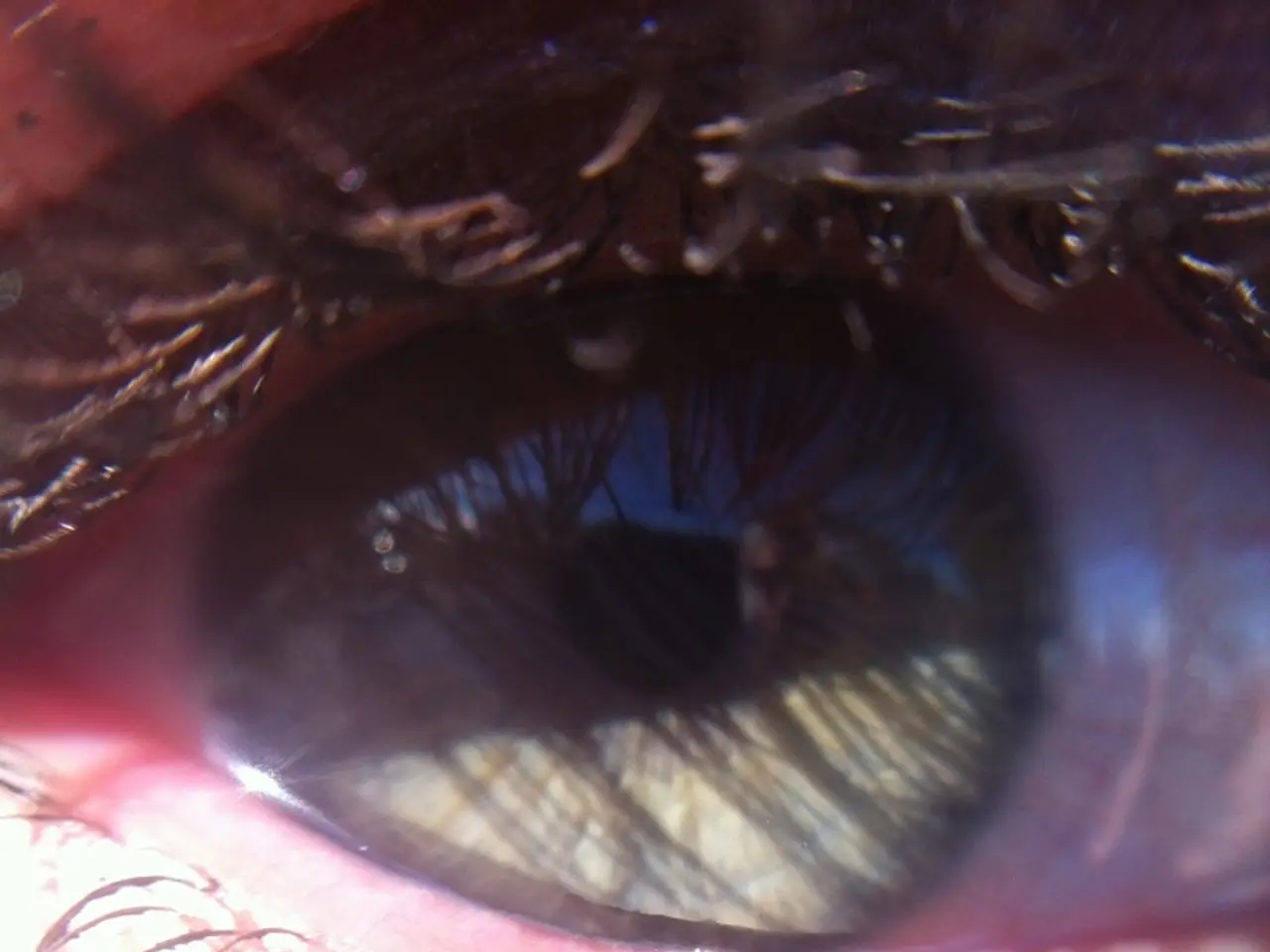Possible reason for morning eye crust: Accumulation of sleep-induced tears, containing oils, debris, and bacteria, can result in eye crustiness upon awakening.
In the morning, waking up to crusty eyes is a common experience for many. But what causes this buildup of fluid that washes away dirt, dust, and other environmental irritants, drying and hardening into a crust?
The culprits behind crusty eyes can vary. Reduced blinking during sleep, as our bodies rest, allows for a natural accumulation of mucus, tears, and skin cells. Allergies can also irritate the eye and trigger more mucus production, leading to increased eye crustiness.
Moreover, conditions such as dry eye syndrome, blepharitis (eyelid inflammation), conjunctivitis (eye infections), clogged oil glands at the lash base, and sometimes Demodex mite infestation can contribute to the problem. Environmental irritants, poor eyelid hygiene, contact lens use, and lack of sleep also play a role.
Pink eye, or infective conjunctivitis, can lead to increased eye crustiness in the morning due to inflammation of the conjunctiva. Styes, which are inflammations or infections of oil glands or follicles in the eyelid, can cause crustiness in one eye. People with blocked tear ducts may notice small lumps of white or yellowish mucus accumulate in the corners of their eyes, along with irritation, redness, swelling, and pain.
Blepharitis, an inflammation of the area where eyelashes grow, can cause redness, itchiness, and crustiness in the morning. If a person is experiencing additional eye symptoms such as increased sensitivity to light, blurred vision, pain, redness and irritation, difficulty opening their eye, dark yellow or green discharge, they should contact a doctor.
Fortunately, treatments for crusty eyes vary depending on the cause but generally include good eyelid hygiene, saline or warm compresses, lubricating eye drops, oral or topical treatments, and medical consultation for bacterial or viral infections.
Maintaining good hygiene practices is essential for preventing and managing crusty eyes. This includes removing makeup thoroughly before sleep, washing hands regularly, avoiding touching eyes with unclean hands, properly cleaning and caring for contact lenses, keeping bedroom allergen levels low, using warm compresses regularly to unclog eyelid oil glands, avoiding sharing towels, pillows, or eye makeup, maintaining adequate sleep, and reducing screen exposure before bedtime.
By identifying the underlying causes, applying appropriate treatments, and adhering to good hygiene practices, we can reduce morning eye crustiness and improve overall eye comfort.





